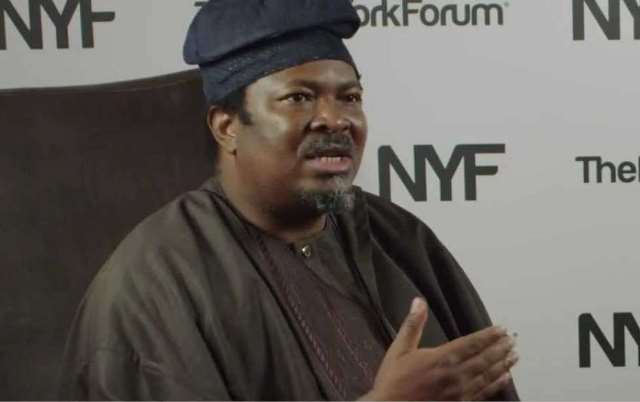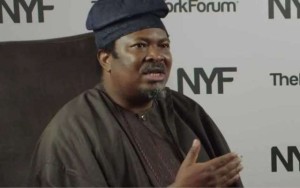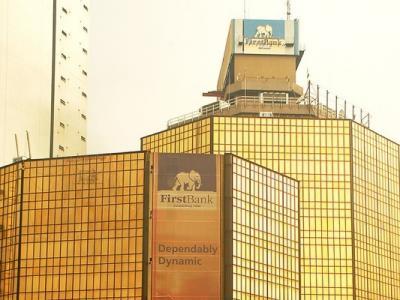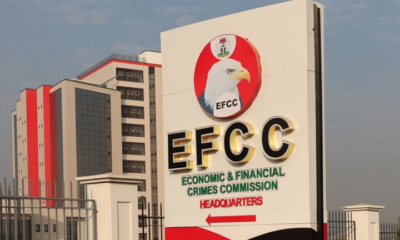Finance
N120m Dasukigate compensation: NPAN, Tribune, Telegraph in counterclaims

LAGOS-THE controversy stirred by the secret payment made to the President of the Newspaper Proprietors’ Association of Nigeria, Mr. Nduka Obaigbena, by a former National Security Adviser, Col. Sambo Dasuki (retd.), has refused to die down.
On Saturday, even as NPAN sought to strengthen its initial claims with additional explanations, some of the parties alleged to have received the funds insisted they did not.
The Executive Secretary, NPAN, Mr. Feyi Smith, in a statement issued on Saturday, sought to clarify the statement issued by Obaigbena on Friday.
Obaigbena’s statement appeared to have stated that the Nigerian Tribune, The Telegraph and the Peoples Daily were among the newspapers that benefitted from the secret N120m compensation money paid to publishing companies whose newspapers were seized by soldiers and intelligence operatives in 2014.
The three newspapers had denied this claim.
But Smith insisted that N10m cheques were issued to each of Tribune and People’s Daily. He added that the cheques were at the NPAN secretariat waiting to be picked. He also claimed that “a process had been ongoing to also pay Telegraph.”
However, when contacted on Saturday, the managements of Tribune and Telegraph insisted for the second day that they had not been informed of the development.
The Economic and Finacial Crimes Commission, as part of its investigation into series of alleged dubious payments made to politicians, government officials and businessmen by a former National Security Adviser, Col. Sambo Dasuki (retd.), had invited Obaigbena, who is also the Publisher of ThisDay whom Dasuki gave N670m.
Obaigbena, in a letter to the EFCC, in which he promised to honour the invitation when he returns from the United States of America, admitted collecting the money.
However, the NPAN president said N550m of the amount was compensation for the losses that his newspaper sustained during Boko Haram attacks on its Abuja and Kaduna offices on April 26, 2012. He said he also collected an additional N120m as compensation for 12 newspaper houses over military attacks on their circulation.
Smith’s statement, which clarified aspects of Obaigbena’s explanations, reiterated that the secret payment was compensation for the “disruption of circulation of newspapers”.
The statement read, “Our attention has been drawn to statements issued last night by the Nigerian Tribune, Peoples Daily and New Telegraph Newspapers claiming that they did not receive the compensation for the military disruption of circulation of newspapers by the Federal Government.
“It should be recalled that the Newspaper Proprietors’ Association of Nigeria’s executive council meeting of March 17, 2015, held at the offices of Daily Trust, Abuja, resolved to accept the N120m compensation and passed two other resolutions thereto.”
The resolutions, according to NPAN, are that each member-organisation accepts to donate N1m from the compensation to the association for the up keep of the secretariat and that members should make their membership account current by paying all past dues to the secretariat before collecting their cheques.
The statement added, “The cheques for the Nigerian Tribune and Peoples’ Daily remain in the Secretariat awaiting collection.
“In the case of New Telegraph, the secretariat was confronted with a situation where 13 newspapers made claims while compensation for 12 newspapers was made. Blueprint Newspapers, which was inadvertently omitted from the list, has since been been paid.
“When New Telegraph now demanded payment that had been collected by Blueprint Newspapers, the secretariat then brought the matter to the attention of the of the President, Mr. Nduka Obaigbena, who then called Governor Orji Kalu, the Publisher of both The Sun Newspapers (who had been paid) and the New Telegraph (which has not been paid), to urge him to be patient for the matter to be tabled at the next executive council meeting, where he would seek the approval of the exco to take the funds earmarked for the Secretariat to pay them.”
However, Tribune, on Saturday, restated its earlier position that the newspaper did not receive the money.
The Managing Director/Editor-in-Chief of the Tribune titles, Mr. Edward Dickson told SUNDAY PUNCH that the NPAN secretariat did not inform the organisation of any waiting cheque.
He said, “Our statement was very clear. If NPAN is now saying that our cheque is laying in their office, then, that confirms to you that we were not given anything. We were not contacted. We got no contacts from NPAN that our cheque was laying at their office. We didn’t get any communication from them.”
Also on Saturday, Telegraph stated that it was not aware that it had been agreed that NPAN would “sort out” its share of the compensation.
The Managing Director/Editor-in-Chief of Telegraph, Mrs. Funke Egbemode, also told our correspondent that despite a letter and a reminder to NPAN on its claim, the secretariat did not deem it fit to explain why its name got missing on the list.
She said while she could not confirm if Obaigbena had called Kalu as Smith claimed, the organisation still stood by its initial claims.
Egbemode said, “I resumed in June as the Editor-in-Chief and MD, I am not aware of any meeting. All I know is that since I resumed, we have written – just as it is stated in the statement we sent out – that the New Telegraph is expecting money.
“We have also sent a reminder and there was no time that they gave us any response at all. We didn’t get any response; not since I’ve been the MD. Maybe they contacted somebody else; maybe my predecessor or anybody else in the system.
“We will wait for whatever is coming. We have not received any money. Also, note that The Telegraph was originally on the list. How we failed to make the list when it was time to write the cheque, we are still wondering.”
When asked if she was aware that Blueprint Newspaper, which was said to have been omitted on the initial list was later included, and used to replace Telegraph, Egbemode said, “No, we were not informed.”
Efforts to get Kalu to confirm Smith’s claim of Obaigbena telephone conversation with him (Kalu) were not successful. Several calls made to his telephone line were not picked; he also did not reply a text message sent to him.
Business
Nigeria pays US$4.9 billion on petrol subsidy in 2024- NNPCL
It was however noted by Biztellers.com.ng, that although subsidy is back in effect, the main reason for that is the increasingly weak state of the Naira and the country’s extreme dependence on products importation. Also unlike the previous subsidy era, where several oil marketers were getting free subsidy refunds for unverified product importation, this subsidy era is witnessing only one importer, the NNPCL, which in effect is the sole receiver of government subsidies.
Yemie ADEOYE
INSPITE of the official position of the Nigerian government that the controversial petrol subsidy is gone for good as announced by the President on assumption of office, the state owned Nigerian National Petroleum Corporation Limited, NNPCL has disclosed that petrol subsidy is still fully operational in Nigeria, although, under a different identity.
Umar Ajiya, Chief Financial Officer at the NNPCL, disclosed that it cost the company a staggering N7.8 trillion (US$4.9) to cover this price gap in the first seven months of 2024.
Rather than simply referring to these claims as subsidies, he stated that the company is merely managing the price difference in petrol imports on behalf of the federation, stressing that this should not be misconstrued as a return to subsidy payments.
![]() This revelation has reignited discussions on whether the NNPC is indirectly offering subsidies, a concept typically defined as selling a product below its cost price.
This revelation has reignited discussions on whether the NNPC is indirectly offering subsidies, a concept typically defined as selling a product below its cost price.
Documents reviewed by Biztellers.com.ng showed that the term “subsidy” was used extensively in official correspondence between the NNPCL and the presidency, particularly in reference to the “shortfall.”
Recall that President Bola Tinubu reportedly approved NNPC’s request to utilize the 2023 final dividends due to the federation to offset these costs.
However, during a media briefing on Monday about the company’s 2023 audited financial statements, Ajiya refuted claims that the NNPC is involved in any subsidy scheme.
Ajiya further disclosed that the Nigerian government owes the NNPC N7.8 trillion ($4.9 billion) in subsidy-related debts for the period from January to July 2024.
In furtherance of his clarification to the News Agency of Nigeria (NAN), Ajiya insisted that no subsidy payments have been made to any marketer in the last nine years, citing the NNPC’s role as the sole importer of petrol under supply contracts.
He said, “In the last eight to nine years, NNPC Ltd. has not paid anyone a dime as a subsidy; no kobo has been disbursed by NNPC Ltd. in the name of subsidy. No marketer has received any payment from us for subsidy.”
“What has been happening is that we have been importing PMS, which has been landing at a specific cost price, and the government tells us to sell it at half price. So the difference between the landing price and that half price is a shortfall.
“And the deal is between the Federation and NNPC Ltd., to reconcile, sometimes they give us money, so there is no money exchanging hands with any marketer in the name of subsidy.”
Ajiya remained silent on how much of the $4.9 billion could have been remitted to the federation account if the NNPC had not been covering the “shortfall.”
It was however noted by Biztellers.com.ng, that although subsidy is back in effect, the main reason for that is the increasingly weak state of the Naira and the country’s extreme dependence on products importation. Also unlike the previous subsidy era, where several oil marketers were getting free subsidy refunds for unverified product importation, this subsidy era is witnessing only one importer, the NNPCL, which in effect is the sole receiver of government subsidies.
Banking
CBN Denies Currency Devaluation

The Central Bank of Nigeria (CBN) has refuted claims of devaluing the.
Earlier reports suggested that the CBN had devalued the Naira, lowering its exchange rate from N631 to the dollar, compared to the previous day’s rate of N461.60 at the Importers and Exporters (I&E) window.
However, the Central Bank of Nigeria (CBN) released a statement on Thursday through its Acting Head of Corporate Communications, Dr. Isa Abdulmumin, categorizing the report as false information.
In the statement titled ‘CBN Has Not Devalued The Naira’, he said the attention of the apex bank was drawn to the news report by an Abuja based newspaper edition of June 1, 2023, titled “CB Devalues Naira To 630/51”.
However, the CBN stated categorically that the news report was replete with outright FALSEHOODS and destabilizing innuendos, ‘reflecting potentially willful ignorance of the said medium as to the workings of the Nigerian Foreign Exchange Market.’
“For the avoidance of doubt, the exchange rate at the Investors’ & Exporters (I&E) window traded this morning (June 1, 2023) at N465/USS1 and has been stable around this rate for a while.
“The public is hereby advised to ignore the news report by Daily Trust in its entirety, as it is speculative and calculated at causing panic in the market,” the CBN spokesman added.
He, therefore, advised media practitioners to verify their facts from the Central Bank of Nigeria before publishing in order not to misinform the public.
Banking
BREAKING: CBN Increases Interest Rate By 0.5%

The interest rate in Nigeria has been raised to 18.5 percent, up by 0.5 percent, from 18 percent where it was pegged in March 2023.
The Central Banks of Nigeria’s (CBN) Monetary Policy Committee (MPC) resolved to this effect at its third meeting of 2023 in Abuja, on Wednesday.
Governor, CBN, Godwin Emefiele, made the disclosure in the communiqué of the MPC’s meeting, thereafter.
While engaging the media at the end of the two-day meeting, Emefiele, said the committee voted to keep the asymmetric corridor at +100 and -700 basis points around the MPR.
In the view of the MPC, rising inflation rate is traceable to the high energy cost and challenges around the supply chain, among others, which lie outside the corridors of the CBN.
Emefiele said, “The current trend in price development would continue to be monitored by the bank with greater collaboration with fiscal authority to address the drivers of inflation.”
Biztellers reports that the CBN had effected six consecutive interest rate increases, which has seen the rate move from 11.5 percent in March 2022 to 18.5 percent in May 2023.





















